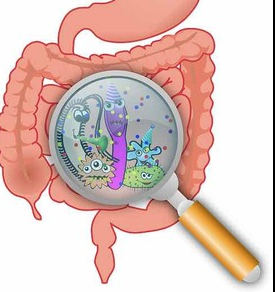Stool Testing
- healthnaturally
- Aug 6, 2021
- 3 min read
What does a stool sample detect?
A stool sample can detect hundreds of conditions from parasite infections to signs of cancer, yeast or bacterial overgrowth, pathogenic bacteria like C. difficile, Campylobacter and certain strains of E. coli. It can also tell us about the integrity of your gut like digestion, absorption and how you utilize food.
What your stool sample detects depends on which stool test you have.
If you’re doing a stool test through a Practitioner like Health Naturally it’s likely to be something we call a Stool Analysis Test and we look at the health of your gut in general along with the conditions mentioned above.Find a test that's right for you.
What are the benefits of doing a stool sample?
Stool samples go to a laboratory where technicians will examine the stool. Below you can find a list of some of the most common conditions found as a result of taking a stool test.
Colon cancer
Two types of stool tests are used as screening tools for colorectal cancer. The older test finds hidden blood in the stool. A newer test looks at DNA in the stool for evidence of colorectal cancer.
However, if either the stool DNA test or the occult blood test is positive, you will still need a colonoscopy
Inflammatory bowel disease
An initial test for IBD measures calprotectin levels in stool. Calprotectin is a protein that is found in white blood cells and it has strong antibacterial and anti-fungal properties.
Calprotectin rises when inflammation occurs. The concentration of calprotectin relates directly to the severity of the inflammation: the more severe your IBD, the higher your calprotectin levels will be.
Fat malabsorption
Stool tests can detect abnormally high amounts of fat, which are a sign that you’re not digesting and absorbing fat in your food properly. There are many different reasons for this: knowing that you don’t absorb fat is different to knowing why, so you’ll need further tests if this happens to you.
Pancreatic insufficiency
To look for pancreatic insufficiency, you can get a test that measures elastase in your stool. Elastase is an enzyme made by special tissue in the pancreas, an organ in your upper abdomen. Elastase helps break down fats, proteins, and carbohydrates after you eat. It’s an important part of digestion.
If your pancreas is healthy, there’ll be enough elastase in your stool. If little or no elastase is found in your stool, it can indicate pancreatic insufficiency.
Pancreatic insufficiency can cause a number of health problems, because it leads to malabsorption and malnutrition. When you can’t digest or absorb the nutrients in your food, your body doesn’t have the building blocks it needs to be healthy.
Small Intestinal Bacterial Overgrowth (SIBO)
A stool sample can give an indication of an overgrowth of bacteria that may be SIBO. A further breath test will tell you what type you may have.
What infections can be found in a stool sample?
There are three main infections that we look for in stool samples: pathogenic bacteria, parasites and worms.
Pathogenic bacteria
The most common pathogenic bacteria include:
Salmonella, often found in raw eggs and raw poultry
Shigella, from contaminated food and water
Campylobacter, from raw or undercooked poultry: the most common cause of bacterial diarrhoea in the UK
Escherichia coli found in raw or undercooked beef
Parasites
Stools can also contain parasites or their eggs. These are produced by many tiny organisms such as Giardia or Blastocystis.
Blastocystis infections are commonly found in the UK. We can’t be sure whether it causes disease or not: millions of people in the developing world harbour Blastocystis with no symptoms at all, but many people in the UK get diarrhoea with a Blastocystis.
Giardia is not quite as common as Blastocystis in the UK, and can cause more severe symptoms. However, doctors and specialists still don’t agree on whether or not we need to eradicate it with antibiotics. Some people live their whole lives with Giardia with no problems, while others have uncomfortable symptoms, like stomach pain, fatigue, greasy stools and wind.
Today, we live very clean lives and our immune systems can overreact to things that wouldn’t have been a problem in the past: this is a big factor in the rise of autoimmune diseases.
Stool Tests pick up both Giardia and Blastocystis. If your results come back positive for either of these parasites, we recommend you tell your doctor.
Worms (Helminths)
You can pick up worms in a variety of ways: if you’ve travelled to a tropical country, for example, or work with children in a day-care centre.
Symptoms of a worm infection include:
abdominal pain
diarrhoea, nausea, or vomiting
gas/bloating
fatigue
unexplained weight loss
abdominal pain or tenderness
If you would like more information regarding our tests available then please contact: healthnaturally1@yahoo.com or call 01825 713754.








Comments